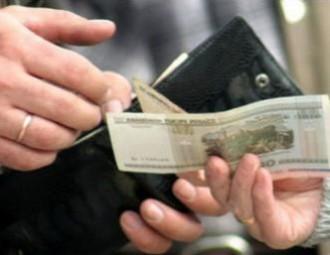Stanislau Bahdankievič: Sooner or later Belarus will have to pass on to the reforms

Sharp collapse in the economy of Belarus is not expected shortly. A scenario of creeping inflation and devaluation of the Belarusan ruble seems more probable.
These thoughts an economist, a former chairman of the National Bank of Stanislau Bahdankievič shared to the EuroBelarus Information Service.
“Extension of the creeping inflation in the consumer market is expected, as well as the extension of the creeping devaluation. But I can’t foresee the collapse in the nearest perspective”, the economist noted.
He assumes that the parameters of the economic development accepted for the following year are “rather doubtful”. “Even this year the prognoses about the exclusion of misbalances between the money supply and the mass of commodities, between the industrial growth and the growth of the population’s incomes are not fulfilled. Imbalances grow, so the improvement is not foreseen. But collapsing deterioration is not expected either”, Stanislau Bahdankievič believes.
In the exchange market, gradual weakening of ruble towards dollar looks like the most probable scenario, as in the end of the quarter breaking the 9000-ruble barrier, and 10 thousand-barrier for dollar for the next year can be expected, the ex-head of the National Bank considers.
The expert noticed that if the authorities were thinking to reject the administrative authoritarian model they would have planned the management of public industries in a different way. “They would have looked upon it more like a capital management, not the administration through officials’ work; they would have introduced other indices, dividends per state-owned capital, for instance, so that to show that the essentially important thing is showing the safety of the capital, without privatization as it is”, explained Stanislau Bahdankievič.
“But there is nothing of that kind. All about the same. The figures have remained the same that they used to be in the past. At its core, administrative economy is going on with the minimal attempts to strengthen its competitiveness. This is what can be mentioned if we look at the indices, ratified by Lukashenko for year 2013”, the economist said.
A scheme with the dissolvent and thinners allowed Belarus to get a favourable balance of trade of 2 milliards, noted the expert, emphasizing that without it there will be no active balance of trade. “But the most important thing is that the external balance is not balanced. In this connection there might be problems, though the information appeared that the Sberbank Rossii is apparently willing to refund one milliard of dollars. And if there is a possibility of refinancing, we should agree to that”, the economist assumes.
Will Belarus manage to attract foreign financing on rather favourable terms is hard to say. “But there are chances. There is a chance to privatize state assets. But outlined plans on privatization are not being implemented. There is a chance to get direct investments, if not from the West, then from Russia. But these plans are not being implemented as well”, stressed Stanislau Bahdankievič.
If plans aren’t fulfilled in future, then the problems will surely appear; because we would have to liquidate a 3 milliard-dollar external debt on the side of the government and the National Bank, noted the expert. But according to him, the main problem, - the low efficiency of the economy, - is not being solved.
“Sooner or later, by fair means or foul, we will have to pass on to the economic reforms. But without reforms in the political and legal spheres economic reforms won’t lead to any positive results. Fundamental changes are required. To solve the problems, activists and non-governmental specialists should be attracted. And if the problem-solution sphere is limited merely to bureaucracy, then the problems won’t be solved, and risks will only increase”, Stanislau Bahdankievič assumes.
-
03.01
-
07.10
-
22.09
-
17.08
-
12.08
-
30.09








































